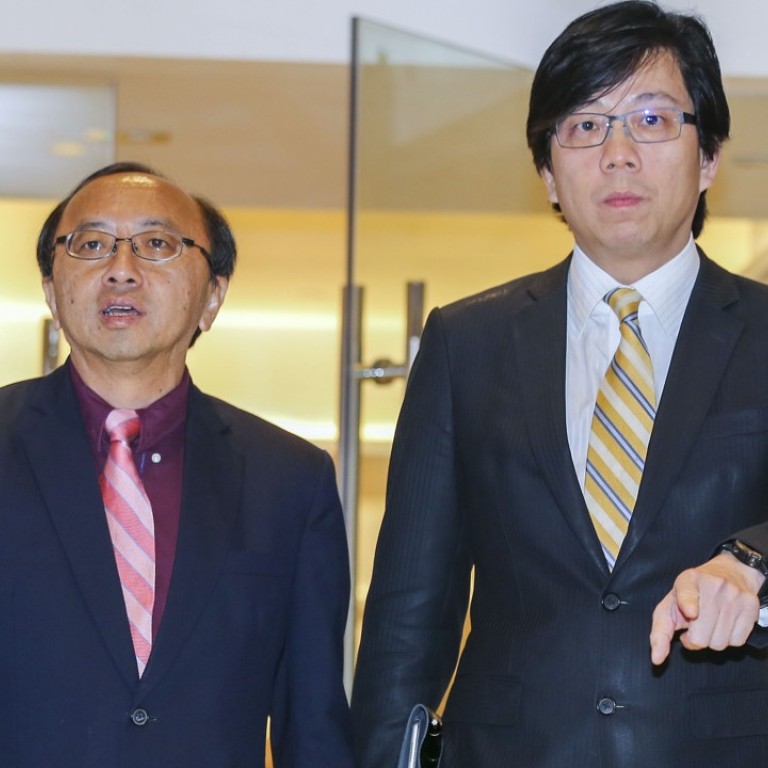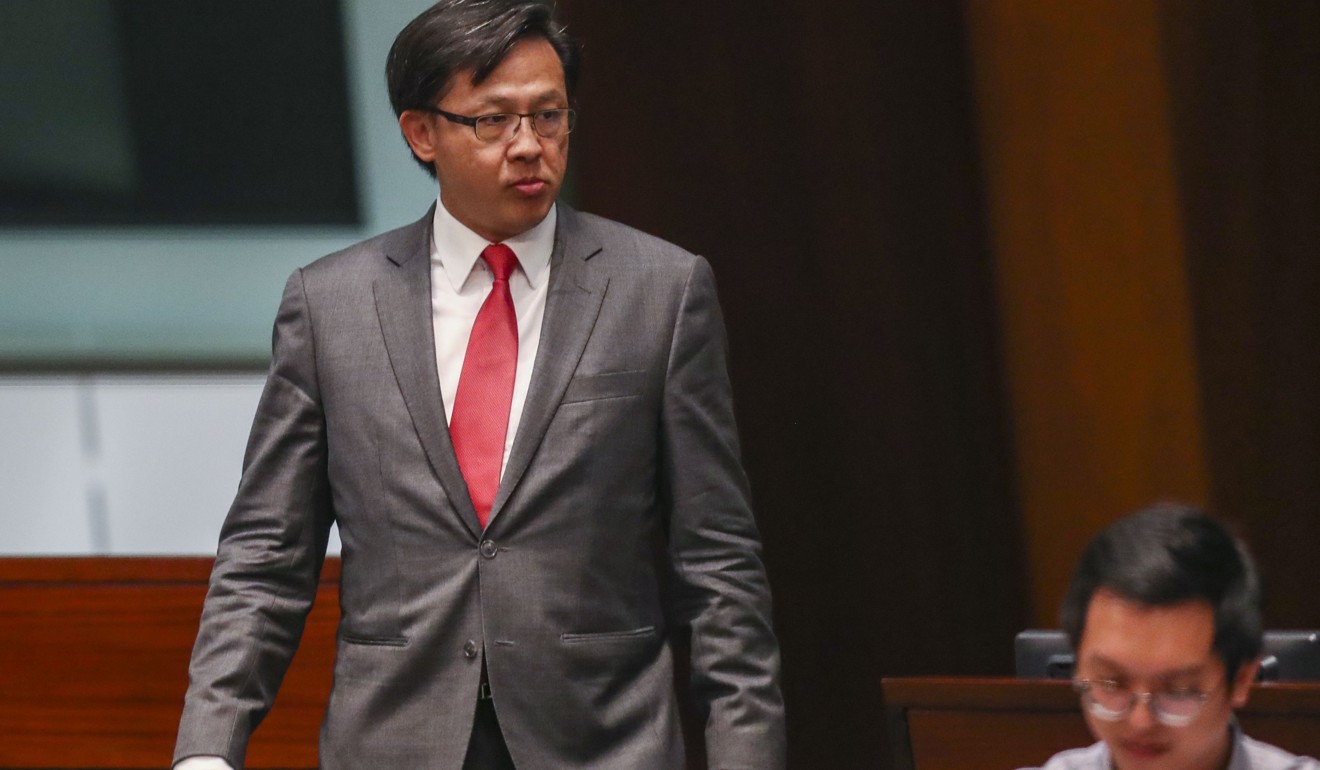
Conservative lawyers’ good showing in Hong Kong Law Society election driven by proxy votes
Former governing council president rejects suggestion junior lawyers were pressured to hand over votes to their seniors to shore up establishment bloc’s chances
And while some argued that showed the mobilising power of the establishment bloc, a member of the council said it did not mean younger lawyers had been forced to hand their vote to their bosses’ favoured candidate.
Five seats with four-year terms were up for grabs on the governing council of the group, which represents Hong Kong solicitors, at its annual general meeting on Thursday night. Members could vote in person, by post or by proxy, meaning they authorise someone else to vote in their stead.
Three election newbies, Pierre Chan Tat-hin, Wong Hau-yan and Karen Lam, won seats. They were seen as favoured by the pro-Beijing camp, after a public endorsement by legislator Junius Ho Kwan-yiu. The three ended up grabbing 1,997, 1,994 and 1,990 votes respectively, proxy votes making up 74 per cent of their total. They all got about 1,480 proxy votes and 400 postal votes, with about 100 in-person votes.
It is quite surprising that the [pro-Beijing] camp has mobilised so many people. There was a surge in proxy compared with last year
The split was completely reversed for Eric Cheung Tat-ming, an outspoken legal scholar who has raised concerns about Beijing’s influence over Hong Kong’s legal system. Cheung took the last seat available, with 1,600 votes, including 135 proxy votes and 1,363 postal votes.
Brian Gilchrist, seen as a moderate, also won a seat.
“It is quite surprising that the [pro-Beijing] camp has mobilised so many people. There was a surge in proxy compared with last year,” Jonathan Man Ho-ching, a human rights lawyer, said.
Last year, the five winners got 923 to 1,514 votes. The highest proxy vote count was 562. Proxy voting as a whole in 2018 was up 163 per cent on a year before, while postal votes were up 50 per cent.
Some sources in the pro-Beijing camp conceded they had been concerned about liberal voices getting louder in the traditionally conservative profession, as happened earlier this year over at the barristers’ professional body.
Thursday night’s results meant only Cheung among the five new council members was likely to bring a change of tone.
However, council member Stephen Hung Wan-shun rejected rumours that bosses pressured junior lawyers into handing over their proxy votes.

“How would a boss dare to pressure staff today? The staff could just tell the world through a single post on Facebook,” he said.
The former council president said proxy and postal votes were just convenient ways for members to vote if they could not make it to the meeting.

